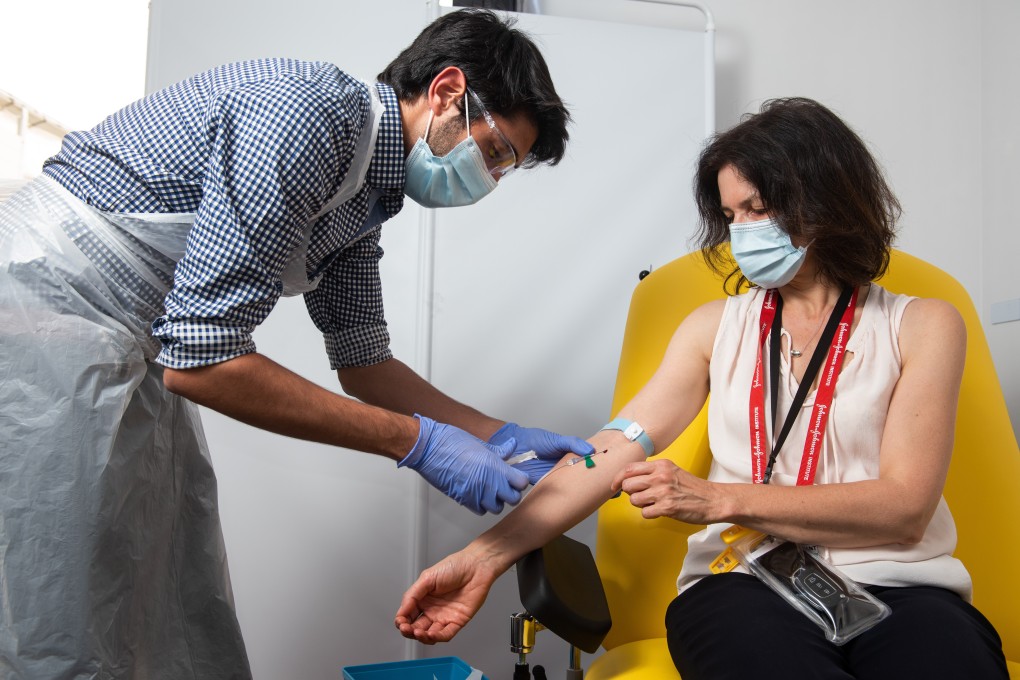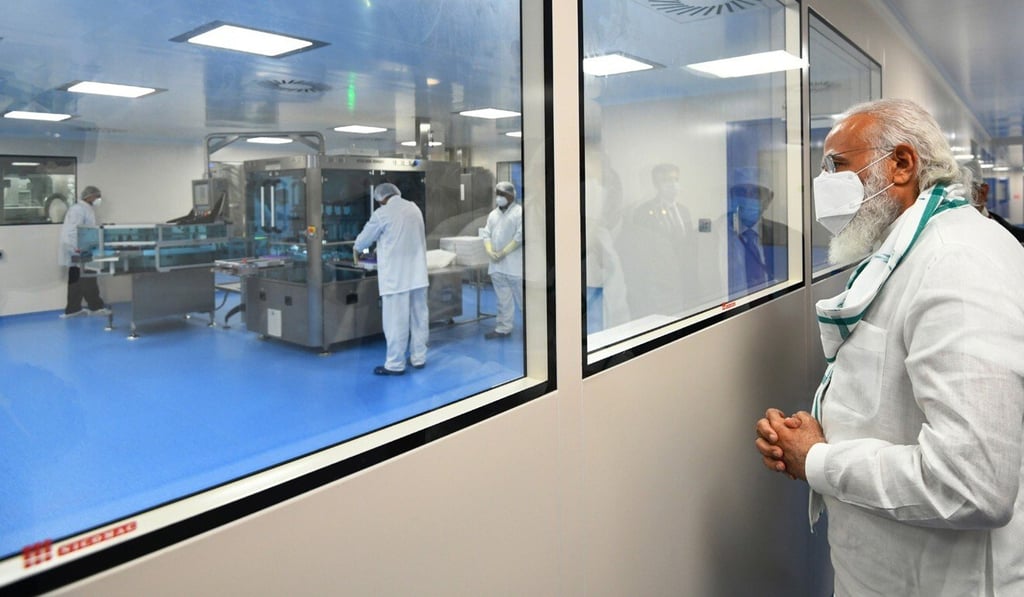Advertisement
Coronavirus: India vaccine giant eyes licence within weeks for Covishield, despite efficacy questions
- The Serum Institute of India is already producing 50-60 million doses of AstraZeneca and Oxford University’s Covishield vaccine per month
- PM Narendra Modi’s government wants 300-400 million doses by July next year as the country battles a new surge in the coronavirus pandemic
Reading Time:2 minutes
Why you can trust SCMP

Agence France-Pressein Pune, India
The world’s largest vaccine manufacturer by volume is set to apply for an emergency licence for a coronavirus vaccine within two weeks, after saying that confusion over the efficacy would not delay its distribution.
Serum Institute of India CEO Adar Poonawala also confirmed on Saturday that the Pune-based giant would be able to produce at least 100 million doses a month from early 2021 of Covishield, which was developed by AstraZeneca and Oxford University.
Poonawalla spoke after a visit to the plant by Prime Minister Narendra Modi, whose government wants 300-400 million doses by July next year as the country battles a new surge in the pandemic.
Advertisement
India, the second worst hit country after the United States, is expected to pass 10 million cases in early December.

Advertisement
AstraZeneca has said further research was needed on the vaccine after scientists raised confusion about Covishield’s efficacy.
Advertisement
Select Voice
Choose your listening speed
Get through articles 2x faster
1.25x
250 WPM
Slow
Average
Fast
1.25x